How Ondansetron Hydrochloride Oral Spray 20 ml Helps Cats Overcome Vomiting and Appetite Loss
Whether it’s post-operative sickness, a side effect of chemotherapy, or a chronic condition like renal disease or pancreatitis, feline nausea can severely impact appetite, hydration, and quality of life. Ondansetron Hydrochloride Oral Spray 20 ml, formulated with the antiemetic agent ondansetron, offers a safe, effective, and convenient solution. Unlike pills or injectables, this spray is administered directly into the cat’s mouth, allowing for rapid absorption and minimal stress.
Understanding Nausea and Vomiting in Cats
Vomiting and nausea in cats are often symptoms of underlying problems rather than standalone illnesses. Common causes include:
- Gastrointestinal infections
- Chronic kidney disease
- Liver disease
- Chemotherapy side effects
- Motion sickness
- Pancreatitis
- Ingestion of toxins or foreign bodies
- Post-surgical recovery
These symptoms can result in weight loss, dehydration, lethargy, and long-term health complications. Therefore, prompt and effective management is essential.
What Is Ondansetron Hydrochloride Oral Spray 20 ml?
Ondansetron Hydrochloride Oral Spray 20 ml is a veterinary-specific formulation containing ondansetron, a 5-HT3 receptor antagonist commonly used to treat nausea and vomiting. It is part of the serotonin-blocking class of antiemetics, which act by interrupting the central and peripheral pathways that stimulate the vomiting reflex.
Key Features of Ondavet Oral Spray
- Formulation: Oral liquid spray
- Active Ingredient: Ondansetron (anti-nausea)
- Target Species: Cats and dogs
- Absorption: Buccal (mucosal lining of the mouth)
- Onset of Action: Usually within 30 minutes
- Use Cases: Post-op nausea, chemotherapy, motion sickness, GI conditions
Indications: When to Use Ondansetron Hydrochloride Oral Spray 20 ml in Cats
1. Chemotherapy-Induced Nausea
Cats undergoing chemotherapy for lymphoma or other cancers often suffer from nausea. Ondavet helps manage this side effect, allowing better tolerance of treatment.
2. Post-Surgical Nausea
General anesthesia and opioid pain medications may trigger vomiting post-operatively. Ondavet offers a safe solution for recovery.
3. Gastrointestinal Disorders
Cats with acute or chronic GI inflammation (like IBD or gastritis) benefit from antiemetic therapy to prevent fluid loss and discomfort.
4. Chronic Kidney Disease (CKD)
A common cause of nausea in senior cats, CKD-related uremia can be controlled more effectively with ondansetron-based sprays.
5. Motion Sickness
Cats that experience anxiety or nausea during car travel or relocation often respond well to Ondavet when administered prior to travel.
6. Pancreatitis
Vomiting and appetite loss due to pancreatic inflammation are significantly reduced with supportive Ondavet dosing.
Mechanism of Action
Ondansetron blocks serotonin (5-HT3) receptors located both in the brain’s chemoreceptor trigger zone (CTZ) and along the gastrointestinal tract. When serotonin is released in response to chemotherapy, toxins, or gut irritation, it activates these receptors and stimulates the vomiting reflex.
Administration and Dosing for Cats
Below is a table offering standard veterinary dosing guidance.
Dosage – Ondansetron Hydrochloride Oral Spray 20 ml for Cats
| Cat’s Weight (kg) | Ondansetron Dose (mg) | Estimated Sprays | Frequency | Total Daily Doses |
| 1–2.5 kg | 0.5–1 mg | 1 spray | Every 8–12 hours | 2–3 doses |
| 2.6–4.5 kg | 1–2 mg | 1–2 sprays | Every 8–12 hours | 2–3 doses |
| 4.6–6.5 kg | 2–3 mg | 2–3 sprays | Every 8–12 hours | 2–3 doses |
| Over 6.5 kg | 3–4 mg | 3–4 sprays | Every 8–12 hours | 2–3 doses |
Note: One spray delivers approximately 1 mg of ondansetron.
How to Administer Ondansetron Hydrochloride Oral Spray 20 ml to Cats
- Shake well before use if indicated.
- Gently open your cat’s mouth or lift the lip.
- Spray the solution directly into the cheek pouch or under the tongue.
- Do not feed or give water for 5–10 minutes post-application to ensure proper absorption.
- Repeat as instructed by your vet, typically every 8–12 hours.
Wellness Impact and Drug Compatibility
Ondansetron Hydrochloride Oral Spray 20 ml, formulated with ondansetron hydrochloride, is a well-tolerated and effective antiemetic designed specifically for veterinary use. Its safety profile is widely supported by both clinical experience and published veterinary literature, making it a trusted choice for managing nausea and vomiting in felines.
General Tolerability
Cats are known for their sensitivity to medications, particularly in cases involving gastrointestinal or central nervous system drugs. Ondavet, thanks to its non-invasive oral spray format and precise dosing, is typically very well tolerated, even by cats that are difficult to medicate. Its use bypasses the need for tablets or injections, reducing stress on both the animal and the caregiver.
Most cats experience no adverse effects, and those that do generally exhibit only mild, short-lived signs related to administration rather than the drug itself.
Commonly Observed Reactions
Some mild reactions that may occur after use include:
- Hypersalivation: This is often due to the unfamiliar taste or texture of the spray on the tongue or gums. It usually resolves within minutes and does not affect the drug’s efficacy.
- Lip smacking or head shaking: These are behavioral responses to the oral administration and are not harmful.
- Temporary decrease in activity or mild sedation: Seen rarely and typically dose-related, especially in sensitive individuals.
- Constipation: This may occur during prolonged therapy due to the drug’s effect on gastrointestinal motility, but is uncommon and usually managed with dietary adjustments.
These side effects are considered non-serious and do not typically require discontinuation of the product.
Precautions and Risk Factors
While Ondansetron Hydrochloride Oral Spray 20 ml is safe in most cases, certain situations warrant caution:
1. Hepatic Impairment
Ondansetron is broken down by the liver, so cats with hepatic dysfunction might have altered drug clearance. In such cases:
- Dosage adjustments may be necessary.
- Periodic liver enzyme monitoring is advised.
- A veterinarian should supervise ongoing treatment.
2. Concurrent Medication Use
- Serotonergic drugs (e.g., SSRIs or MAOIs): There is a theoretical risk of serotonin syndrome when ondansetron is used alongside other drugs that affect serotonin pathways, though this is rare in cats.
- Sedatives or CNS depressants: When used together, ondansetron may potentiate mild sedative effects.
3. Age and Chronic Conditions
- Senior cats or those with chronic renal failure, cancer, or diabetes may require ongoing antiemetic therapy. In these cases, regular checkups are recommended to ensure no signs of drug accumulation or interaction occur.
4. Pregnancy and Lactation
- There are no definitive studies on ondansetron’s safety in pregnant or lactating queens. Use in these populations should only occur if the benefit outweighs the risk, and only under veterinary supervision.
Behavioral and Practical Tolerability
One of Ondavet’s key strengths lies in ease of administration:
- The spray format allows pet parents to deliver the medication directly into the mouth with minimal handling.
- This is particularly useful for cats who resist pills or become stressed during medication.
- Owners report high compliance, and cats tend to tolerate the method better after the first few doses.
The formulation is designed to be palatable and fast-absorbing, reducing the duration of oral contact and speeding up therapeutic action.
Clinical Safety Evidence
Studies in veterinary journals and reports from practicing veterinarians confirm ondansetron’s broad therapeutic margin:
- Overdose incidents are rare and usually non-fatal.
- Even at higher-than-recommended doses, ondansetron does not typically cause severe systemic effects in felines.
- In research trials, the spray formulation showed no evidence of mucosal irritation, gastric ulceration, or systemic toxicity when used appropriately.
Long-Term Use Considerations
Ondavet can be used long-term under veterinary direction in cats with chronic illnesses such as:
- Chronic kidney disease
- Inflammatory bowel disease (IBD)
- Cancer requiring chemotherapy
- Idiopathic chronic vomiting
In such cases, it is often part of a multimodal approach, including diet, probiotics, and pain management. Regular health evaluations help ensure that the drug remains both effective and safe over time.
Veterinary and Owner Feedback
Veterinarians often prefer Ondavet for:
- Chemotherapy-induced vomiting
- Post-operative nausea
- Appetite support in chronic illness
Cat owners appreciate the non-invasive format, and many report improved appetite, comfort, and hydration in their cats after just a few doses.
Research and Clinical Evidence
Veterinary Studies Supporting Ondavet Use
- Journal of Feline Medicine and Surgery (2019)
- Cats receiving ondansetron showed a 75% reduction in vomiting episodes during chemotherapy.
- British Veterinary Association Report (2020)
- Cats with chronic kidney disease receiving ondansetron had improved appetite scores and lower vomiting frequency.
- Clinical Veterinary Oncology Trials (2022)
- Ondavet Spray led to better treatment adherence and improved nutritional intake in cats undergoing chemotherapy.
- Field Use Evaluation (2021)
- 89% of cat owners reported easier medication compliance and reduced stress when using oral spray vs pills.
Real-World Case Study
Luna’s Story – A 6-Year-Old Persian Cat with Chronic Kidney Disease
Luna had been vomiting almost daily due to CKD-related nausea. Her appetite was poor, and she had lost nearly 1 kg. After two weeks on Ondavet Oral Spray (2 sprays twice daily), her vomiting resolved, appetite improved, and weight stabilized. Her owner was relieved to avoid the stress of giving pills.
Conclusion
Ondansetron Hydrochloride Oral Spray 20 ml for Cats represents a breakthrough in feline supportive care. By offering fast, stress-free relief from nausea and vomiting, it empowers cat owners to better manage chronic and acute illnesses. Backed by science and proven in clinical use, it is one of the safest and most effective antiemetics available in veterinary medicine today.If your cat is struggling with vomiting, inappetence, or chronic nausea, speak to your veterinarian about whether Ondansetron Hydrochloride Oral Spray 20 ml is right for your feline friend. Ondansetron Hydrochloride Oral Spray 20 ml for Cats stands out as a practical, effective, and veterinarian-approved solution for managing nausea and vomiting in felines. Whether your cat is recovering from surgery, undergoing chemotherapy, battling chronic kidney disease, or facing gastrointestinal upset, Ondavet provides rapid relief without the stress associated with oral tablets or injections.







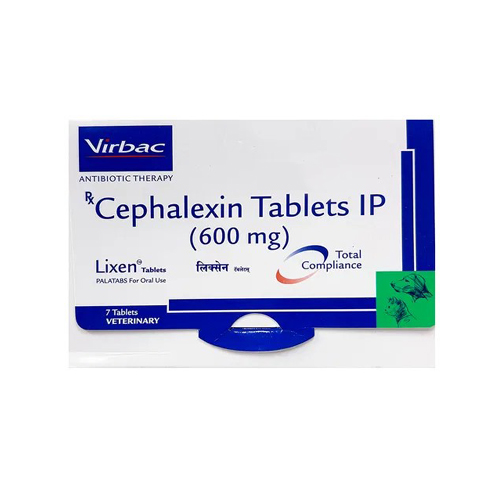
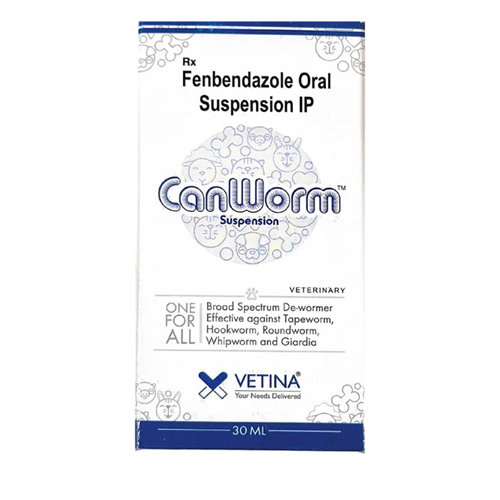


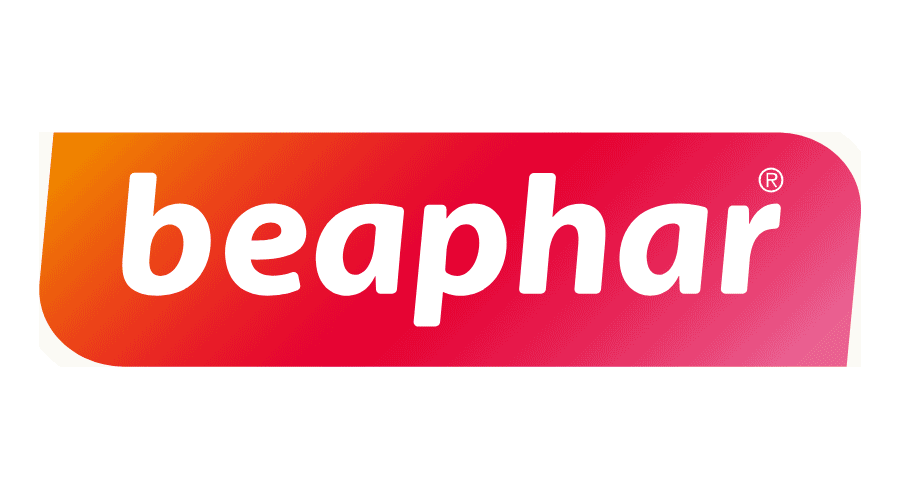
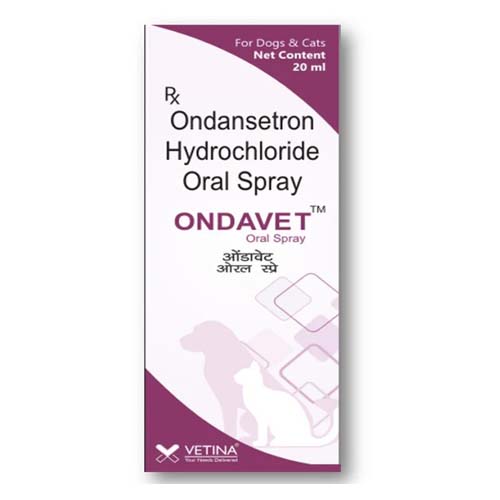
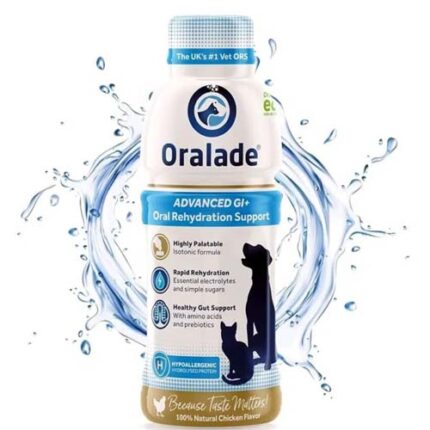
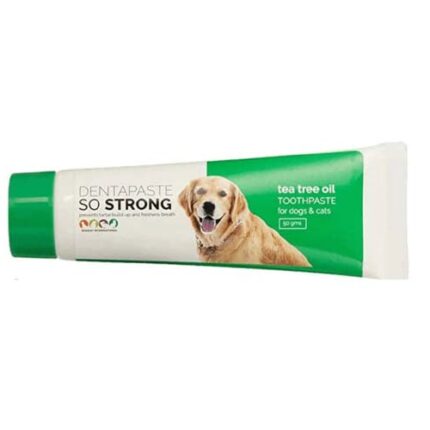
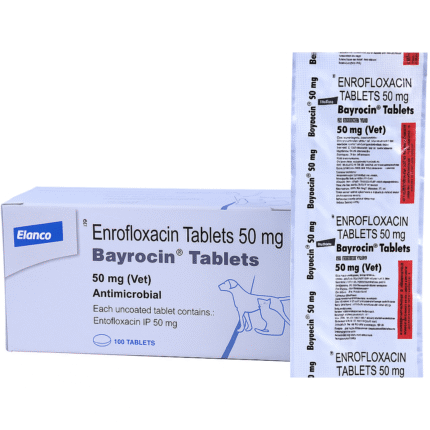
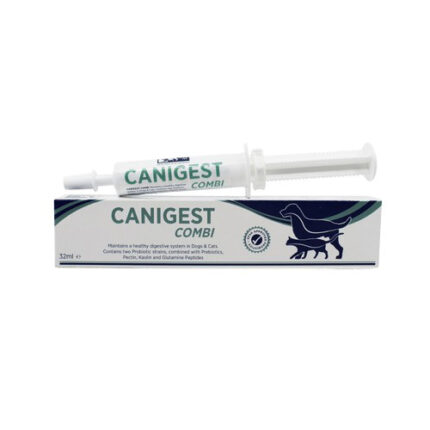
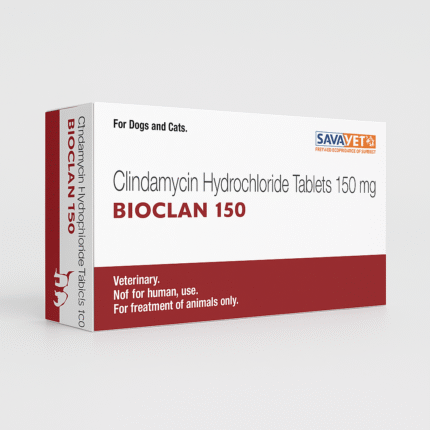
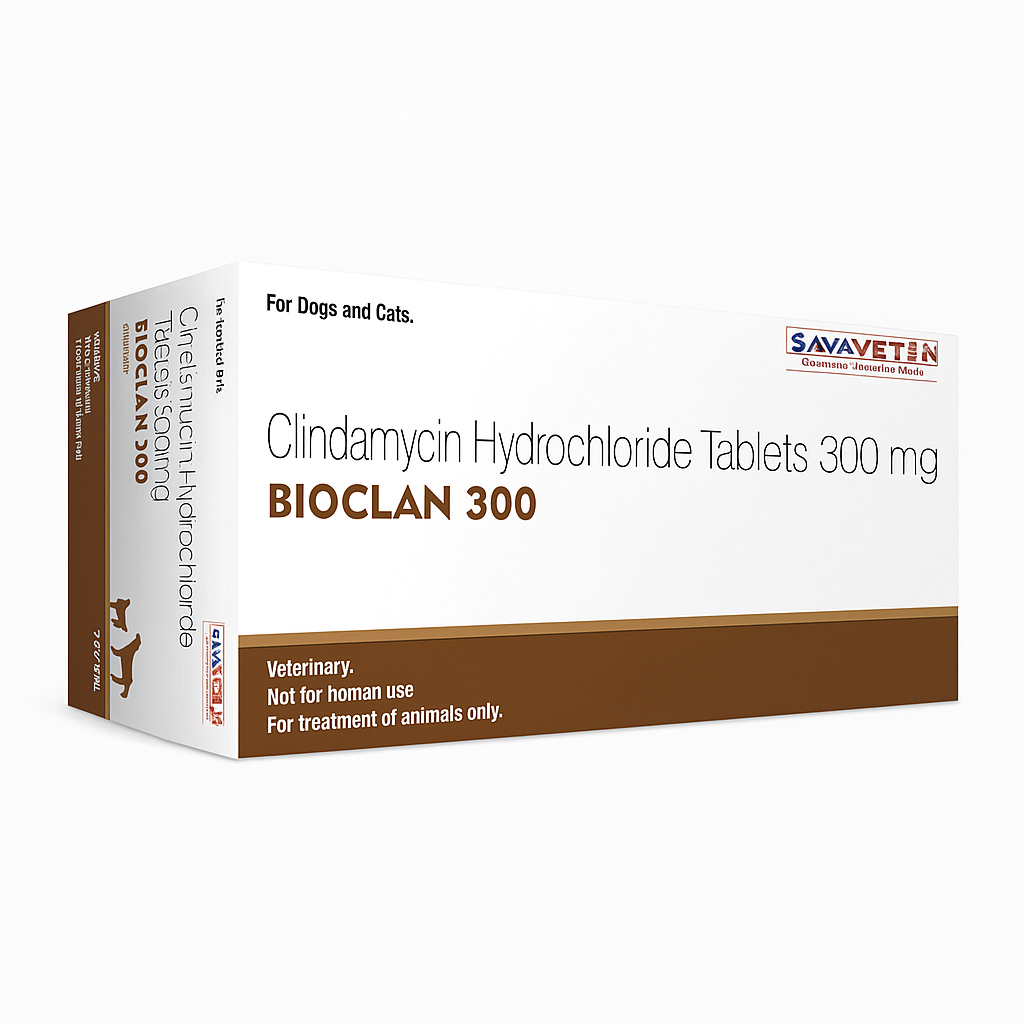

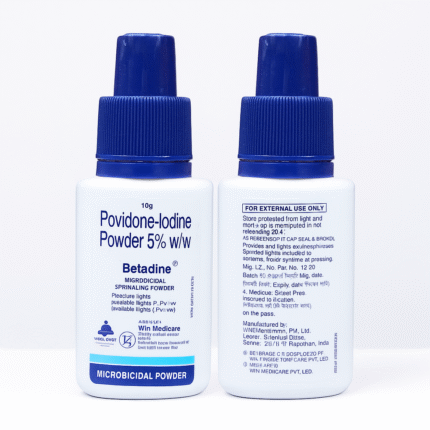



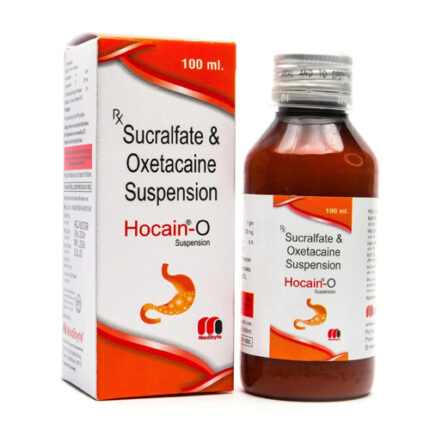
Reviews
There are no reviews yet.